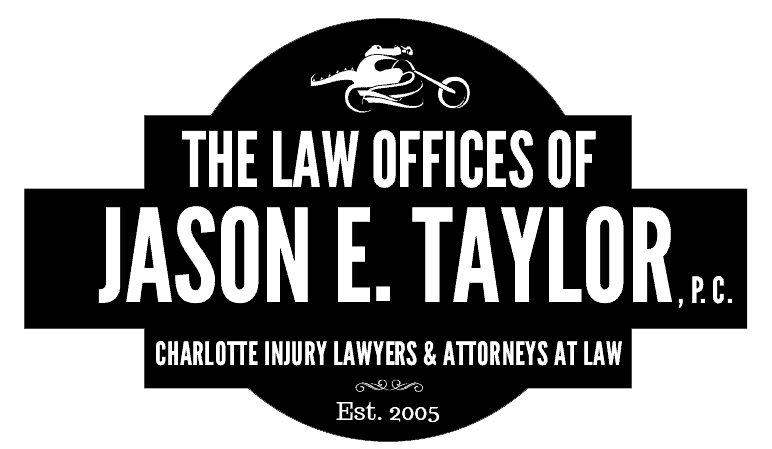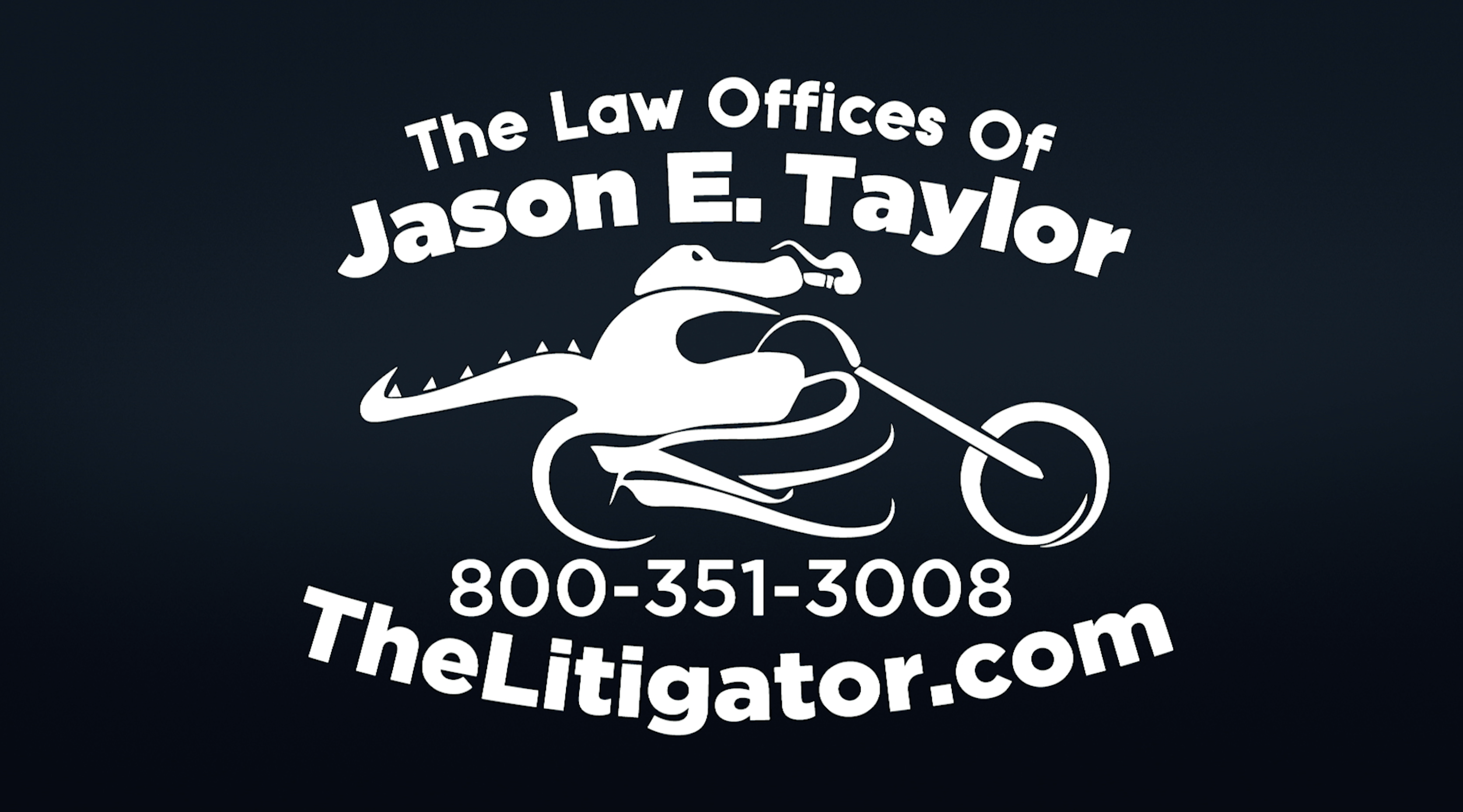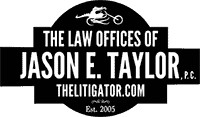Cuando una lesión en el lugar de trabajo lo deja incapacitado para trabajar, pierde los ingresos necesarios para mantener a su familia y pagar los gastos diarios. No debería tener que luchar con una compañía de seguros para recuperar estos daños.
Si se lesiona en el trabajo en Charlotte, Carolina del Norte, tiene derecho a recibir salarios perdidos. En las Oficinas Legales de Jason E. Taylor, nuestros abogados de compensación laboral de Charlotte pueden ayudarle a presentar un reclamo de compensación laboral y comprender sus derechos y opciones. Pueden luchar por todos los beneficios a los que usted tiene derecho.
Sistema de Compensación para Trabajadores de Carolina del Norte
La compensación laboral es un sistema de seguro que brinda beneficios a los empleados que se lesionan o enferman debido a su trabajo. Los beneficios pueden incluir gastos médicos, reemplazo de ingresos y beneficios por fallecimiento. Los empleadores de Carolina del Norte con tres o más empleados regulares deben obtener un seguro de compensación laboral para protegerse a sí mismos y a sus empleados en caso de un accidente.
Qué hacer después de una lesión laboral en Charlotte, Carolina del Norte
Si se lesionó en el trabajo, debe informar la lesión a su empleador y él debe derivarlo a un proveedor médico. Sin embargo, si su lesión es grave, busque atención médica de inmediato. Una vez que haya visto a un médico, debe comunicarse con un abogado con experiencia en compensación laboral. Un abogado puede ayudarle a navegar por el sistema de Compensación al Trabajador y garantizar que obtenga los beneficios que se merece. Póngase en contacto con nosotros hoy para una consulta gratuita.
Presentación de reclamos de compensación laboral en Charlotte, Carolina del Norte
Un trabajador lesionado presenta un reclamo ante la Comisión Industrial de Carolina del Norte y ante la compañía de seguros que brinda cobertura de compensación laboral a su empleador para obtener beneficios. Al principio, es la compañía de seguros la que decide aceptar o rechazar su reclamación. Si se aprueba su reclamo, puede ser elegible para varios beneficios, incluidos los salarios perdidos.
¿Qué cubre la Compensación Laboral?
En general, la compensación laboral debe cubrir cualquier lesión por accidente o enfermedad causada por su trabajo. Esto puede incluir lesiones en el trabajo y enfermedades resultantes de la exposición a materiales o condiciones peligrosas.
Beneficios de reemplazo salarial cubiertos por compensación laboral en Carolina del Norte
Puede ser elegible para recibir beneficios de indemnización si no puede trabajar debido a una lesión relacionada con el trabajo. Estos beneficios generalmente reemplazan dos tercios de sus salarios perdidos.
Beneficios por Incapacidad Total Temporal
Si no puede trabajar por completo debido a sus lesiones, puede ser elegible para recibir beneficios por incapacidad total temporal. El monto de estos beneficios se basa en su salario semanal promedio y, por lo general, se pagan semanalmente.
Beneficios por Incapacidad Parcial Temporal
Si puede regresar a trabajar pero no puede ganar su salario completo, puede ser elegible para recibir beneficios por incapacidad parcial temporal. Estos beneficios se basan en la diferencia entre su salario antes de la lesión y su salario actual. Estos beneficios generalmente se pagan quincenalmente.
Beneficios por incapacidad parcial permanente
Si ha sufrido una lesión permanente y un médico le ha asignado una calificación de discapacidad permanente, puede ser elegible para recibir beneficios por incapacidad parcial permanente. Estos beneficios se pagan en una suma global y se basan en la gravedad de sus lesiones según lo determine un médico.
Otros beneficios disponibles bajo la compensación laboral en Charlotte, Carolina del Norte
Además de los beneficios de reemplazo salarial, también puede ser elegible para otros beneficios, como gastos médicos y rehabilitación vocacional.
Beneficios médicos
Si se lesiona en el trabajo, es posible que tenga derecho a que la compensación laboral cubra sus gastos médicos. Esto incluye el costo de las visitas al médico, estadías en el hospital, medicamentos recetados y más.
Beneficios por muerte
Si muere en el trabajo, los miembros de su familia sobrevivientes pueden ser elegibles para recibir beneficios por fallecimiento. Estos beneficios pueden ayudar a cubrir los gastos funerarios y de entierro.
Beneficios suplementarios por desplazamiento laboral
Si no puede regresar a su trabajo anterior a la lesión, puede ser elegible para rehabilitación vocacional. Este beneficio puede ayudarle a volver a capacitarse para un nuevo trabajo o aprender nuevas habilidades.
¿Tengo que pagar impuestos sobre la compensación laboral?
En la mayoría de los casos, los beneficios de compensación laboral no están sujetos a impuestos. Sin embargo, existen algunas excepciones, por lo que debe consultar con su contador o asesor fiscal para estar seguro.
¿Cuánto duran los beneficios de compensación laboral?
La cantidad de tiempo que reciba los beneficios de compensación laboral dependerá de la gravedad de sus lesiones y de su capacidad para regresar al trabajo. En general, los beneficios por incapacidad temporal durarán hasta que alcance la máxima mejora médica.
¿Qué sucede si se rechaza mi reclamo?
Si se rechaza su reclamo de compensación laboral, tiene derecho a solicitar una audiencia ante un Comisionado Adjunto y a participar en el proceso de audiencia. El Comisionado Adjunto determinará entonces la compensabilidad de su reclamación.

Póngase en contacto con un abogado con experiencia en compensación laboral de Charlotte hoy
Merece obtener todos los beneficios a los que tiene derecho según la Ley de Compensación para Trabajadores de Carolina del Norte. Si ha resultado lesionado en el trabajo, no dude en comunicarse con un abogado con experiencia . En Las Oficinas Legales de Jason E. Taylor, cubrimos reclamaciones de compensación laboral y lesiones personales. Trabajaremos arduamente para conseguirle la compensación que se merece para que pueda concentrarse en su recuperación y volver a trabajar lo antes posible.








